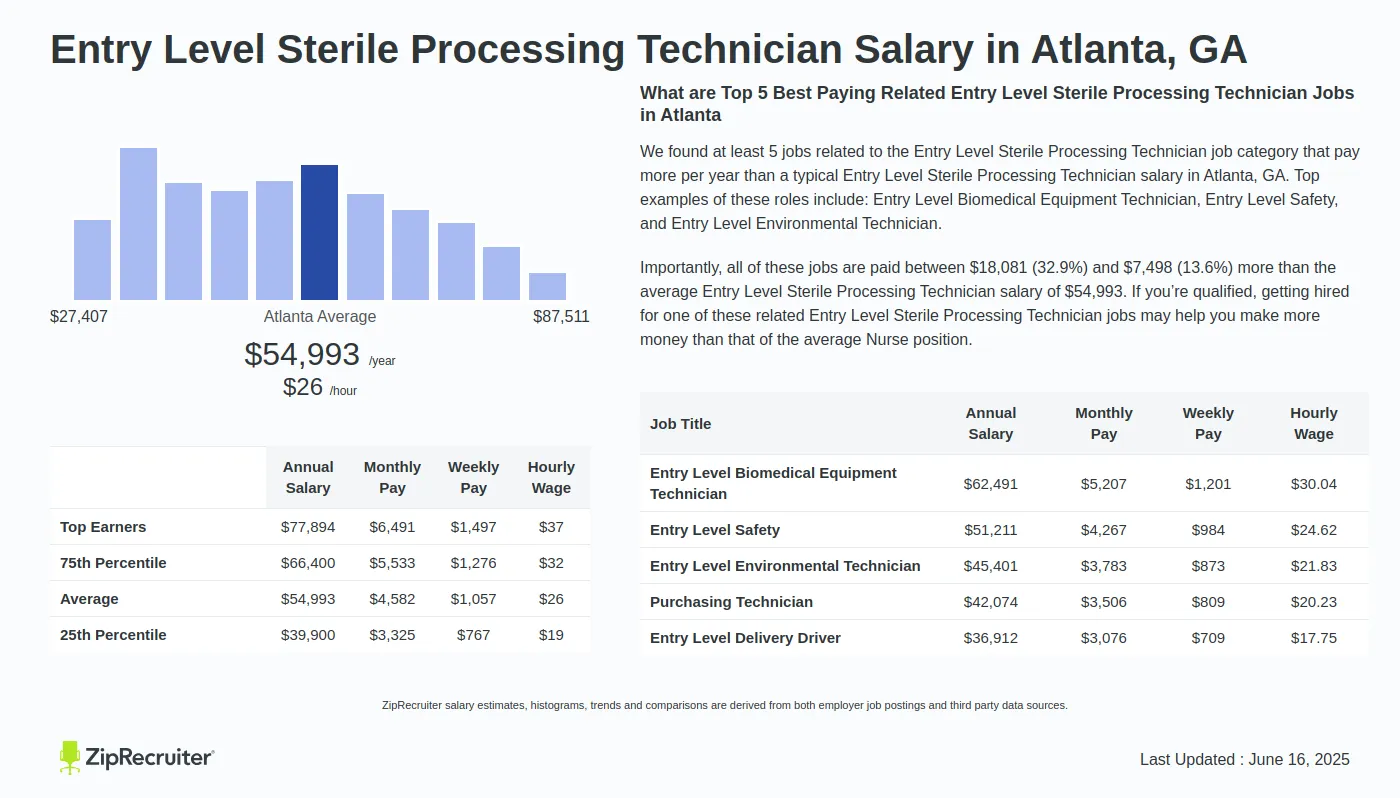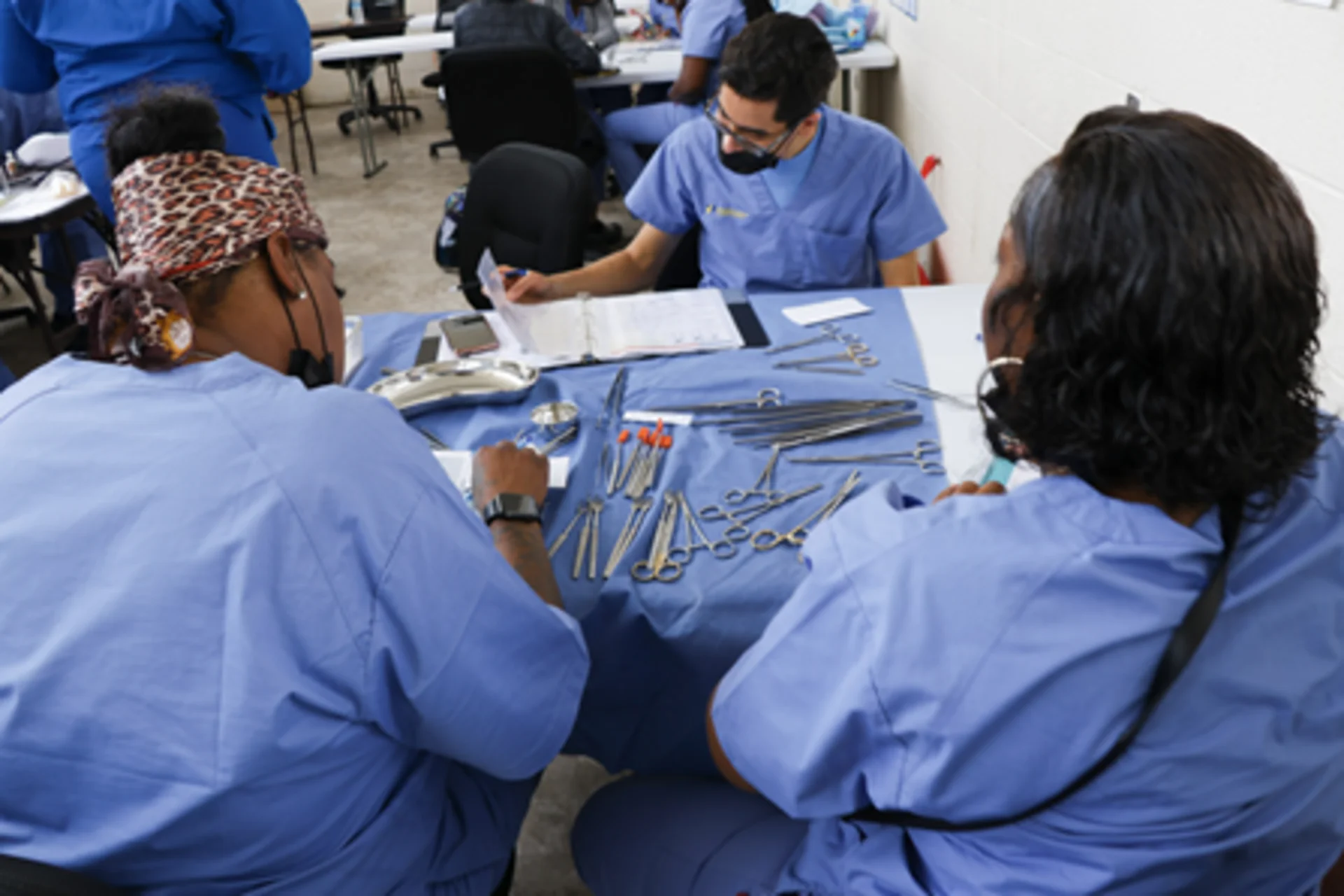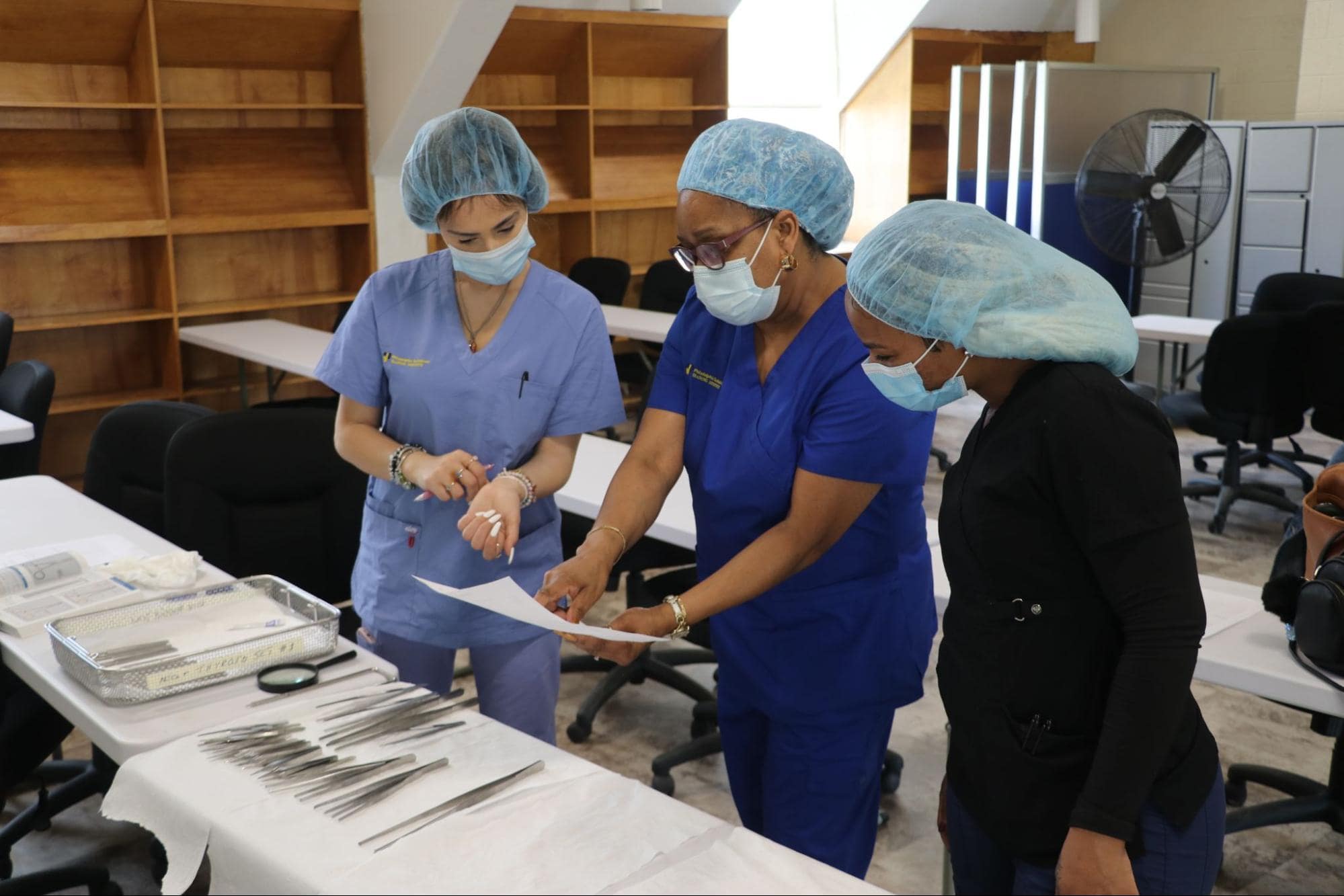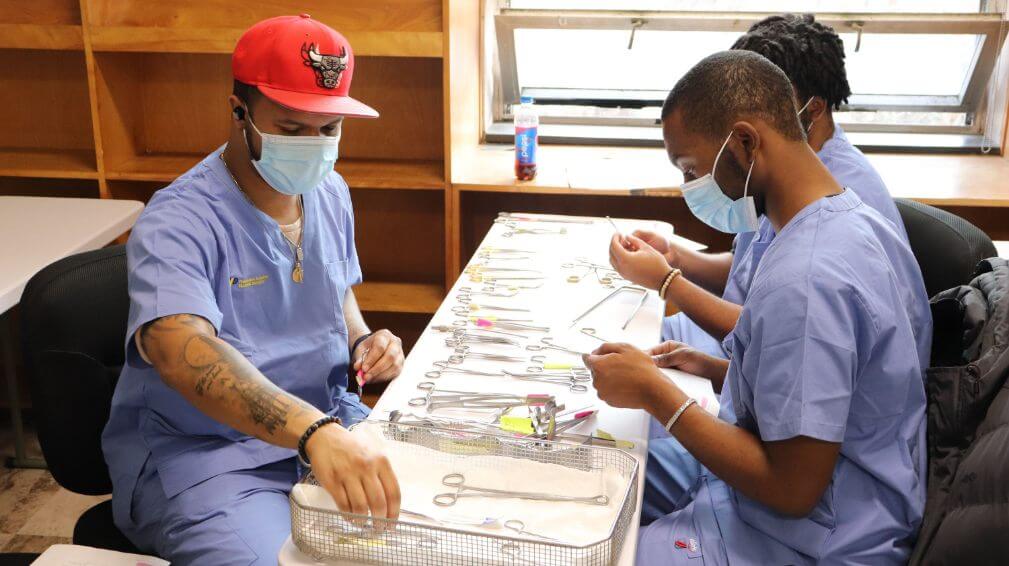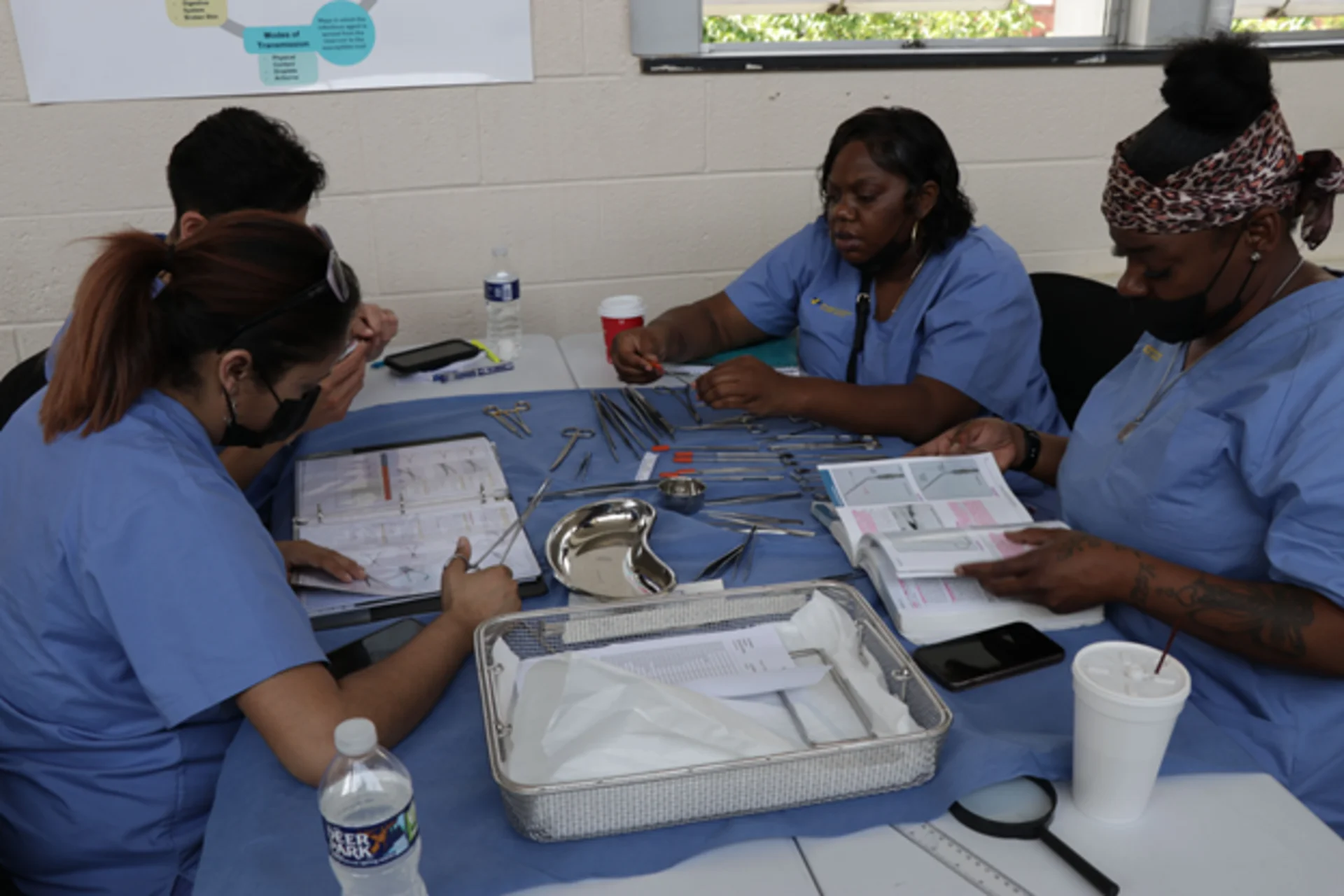Sterile Processing And Distribution Technician Salary

Imagine a hospital bustling with activity. Doctors and nurses rush between patients, surgeries are underway, and essential equipment is constantly in demand. Behind the scenes, in a room humming with the gentle whir of autoclaves, lies a critical team ensuring everything runs smoothly: the sterile processing and distribution technicians.
While often unsung, these professionals are the backbone of patient safety, meticulously cleaning, sterilizing, and distributing medical instruments. Their work directly impacts patient outcomes and infection control, making their role invaluable to any healthcare facility.
This article explores the salaries of Sterile Processing and Distribution Technicians, providing insight into the factors that influence their earning potential and highlighting the growing demand for these crucial healthcare workers.
The Core of Sterile Processing
The sterile processing department (SPD), also known as central sterile supply department (CSSD), is a vital but often overlooked area within healthcare facilities. Technicians in this department are responsible for the decontamination, inspection, assembly, sterilization, and distribution of surgical instruments and medical equipment.
This intricate process requires a high level of precision, attention to detail, and adherence to strict protocols to prevent infections and ensure patient safety. Without properly sterilized equipment, even the most skilled surgeons cannot perform their jobs effectively.
What Impacts Salary?
The salary of a sterile processing technician can vary widely based on several factors. Location, experience, certification, and the type of healthcare facility all play a significant role.
According to the Bureau of Labor Statistics, the median annual wage for medical equipment preparers, which includes sterile processing technicians, was $43,440 in May 2023. However, this figure represents a national average, and actual salaries can differ considerably from state to state and city to city.
Generally, states with a higher cost of living, such as California, New York, and Massachusetts, tend to offer higher wages. Metropolitan areas also often offer higher salaries compared to rural locations, reflecting the increased demand and cost of living.
Experience and Certification
Entry-level technicians typically earn less than those with several years of experience. As technicians gain experience and demonstrate proficiency, they can command higher salaries.
Certification is another significant factor that influences earning potential. Professional certifications, such as those offered by the Certification Board for Sterile Processing and Distribution (CBSPD) or the International Association of Healthcare Central Service Materiel Management (IAHCSMM), validate a technician’s knowledge and skills, making them more attractive to employers and often leading to higher pay.
Type of Facility
The type of healthcare facility also affects salary. Large hospitals and academic medical centers often pay more than smaller clinics or ambulatory surgery centers.
This is partly due to the complexity and volume of instruments processed in larger facilities, as well as the higher expectations and responsibilities placed on technicians.
The Growing Demand
The demand for sterile processing technicians is projected to grow in the coming years. This growth is driven by several factors, including an aging population, advancements in medical technology, and a greater emphasis on infection control.
As the population ages, the demand for medical procedures and surgeries is expected to increase, leading to a greater need for sterile processing services. Advancements in medical technology also mean that new and more complex instruments are being used, requiring specialized cleaning and sterilization techniques.
Moreover, heightened awareness of healthcare-associated infections (HAIs) has led to stricter regulations and greater emphasis on infection prevention. This has increased the demand for qualified sterile processing technicians who can ensure that medical instruments are properly sterilized.
Investing in the Future
Becoming a sterile processing technician offers a stable career path with opportunities for advancement. Many hospitals offer tuition reimbursement or other educational benefits to help technicians pursue further education and certification.
Some technicians may choose to advance into supervisory or management roles, overseeing the operations of the sterile processing department. Others may specialize in specific areas, such as orthopedics or ophthalmology, becoming experts in the sterilization of specialized instruments.
Furthermore, the role is incredibly rewarding. Knowing that you play a crucial part in ensuring patient safety and positive outcomes can bring a great sense of satisfaction. It is a profession where attention to detail, dedication, and a commitment to excellence are truly valued.
While the work is often behind the scenes, the impact is significant. The dedication of these professionals directly contributes to the well-being of countless patients, making them essential members of the healthcare team.
